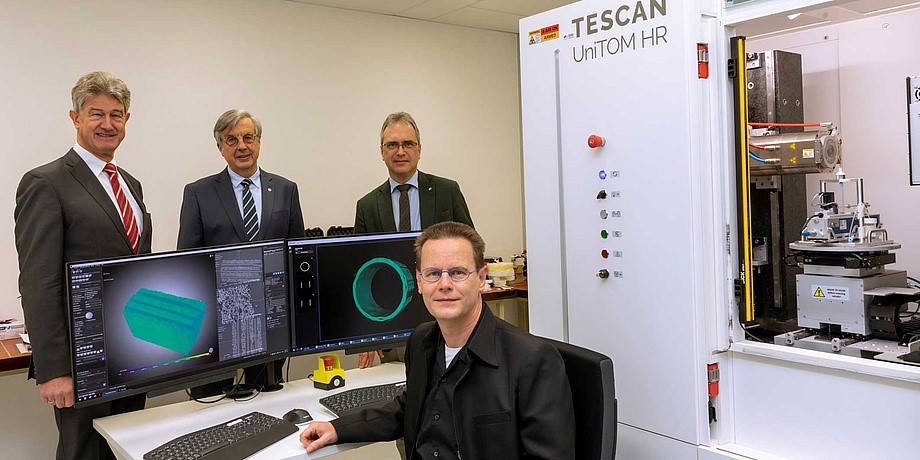As part of the Graz-µCT consortium, Graz University of Technology has purchased two new TESCAN micro-CT systems that will be used to non-destructively observe and measure structural changes inside materials under real operating conditions
TESCAN installed two new micro-CT systems at Graz University of Technology: the TESCAN UniTOM HR and UniTOM XL. These are the first micro-CT systems to be installed in Austria―bringing the power of dynamic micro-CT to Austrian researchers for the first time. The devices open up a window into materials of all kinds at the micrometer scale without destroying the material samples.
TESCAN’s UniTOM HR is the first dynamic micro-CT system to offer sub-micron resolution 3D non-destructive imaging and high temporal resolution for uninterrupted 4D dynamic CT experiments. It provides the extra step in resolution needed to fully understand the behavior of complex materials, as the smallest features often play a crucial role in material performance. TESCAN’s UniTOM XL is a multi-scale imaging CT solution that features volume of interest scanning (VOIS) capabilities and is designed to accommodate a wide range of sample sizes and types.
The two new highly innovative micro-CT devices are housed in the basement of the Physics building of Graz University of Technology (TU Graz) at Campus Neue Technik. They were purchased by three Graz universities as part of the Graz-µCT consortium with financial support from an R&D infrastructure grant from the Austrian Research Promotion Agency FFG. The aim of the purchase is to enhance research at the universities with in-situ experiments in the fields of medicine, pharmaceutics, geology, metallurgy, and pulp and paper technology. The systems will also be available, upon request, to external universities and non-university research institutions, which is unique in Austria.

TU Graz Rector, Harald Kainz, states, “I’m proud that we have the opportunity to use such highly innovative research equipment at TU Graz. This novel method of examining materials without destroying the samples in the process heralds a new era in materials research.”
According to the Rector of the Medical University of Graz, Hellmut Samonigg, “The innovative Micro-CT Lab is another important building block for the joint forward-looking research of the University of Graz, TU Graz and the Medical University of Graz, which will make a significant contribution to the national and international profile of top-level research in Graz.”
Peter Riedler, the executive Rector of the University of Graz, adds, “The Graz-µCT consortium is a perfect example of successful cooperation between the universities at the Graz location. University research at the highest level is carried out here.”
Dr. Wesley De Boever, Product Marketing Manager at TESCAN states, “Dynamic micro-CT is an extremely useful and powerful technique that offers the ability to image material behavior at the micrometer scale, and it complements the already existing materials characterization solutions at Graz University, such as scanning electron microscopy. We are thrilled that Graz selected the TESCAN systems and excited to be the first to install micro-CT microscopes at Graz, as well as in Austria. We anticipate exciting results from their research.”
For more information about TESCAN’s micro-CT solutions, visit the website.

